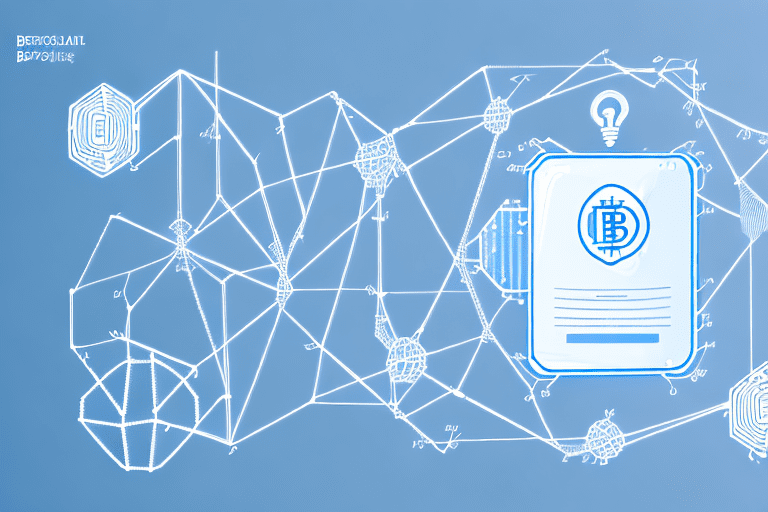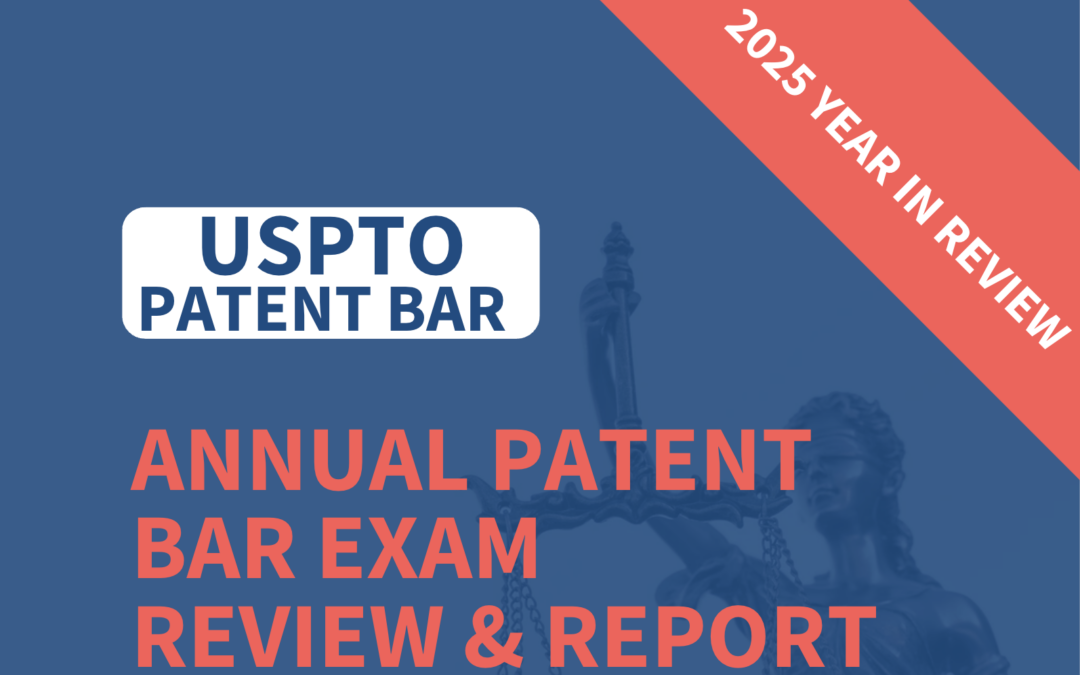Blockchain technology has revolutionized the way we think about data sharing and security. Its potential applications extend far beyond cryptocurrencies, with industries such as finance, supply chain, healthcare, and creative arts exploring its capabilities. However, with the rise of blockchain comes the need to protect intellectual property (IP) rights in this digital age.
Understanding Blockchain Technology
The Basics of Blockchain:
At its core, blockchain is a decentralized and transparent digital ledger that records transactions across multiple computers. Each transaction is stored in a block, which is then added to a chain of previous blocks, hence the name “blockchain.” The security of this technology lies in its immutability, as each block is linked to the previous one using cryptographic hashes, making it nearly impossible to alter data retroactively.
Blockchain technology eliminates the need for intermediaries, such as banks or governments, by enabling peer-to-peer transactions. It has the potential to enhance efficiency, traceability, and trust in various industries.
Blockchain and Its Impact on Various Industries:
Finance: Blockchain has disrupted the financial sector by providing secure and transparent transactions. It enables faster cross-border payments, reduces fraud, and enhances transparency in auditing processes.
Supply Chain: With blockchain, supply chain management becomes more efficient and transparent. It allows real-time tracking of goods, reduces counterfeiting, and improves trust between suppliers, manufacturers, and customers.
Healthcare: Blockchain offers solutions to challenges in healthcare, such as secure storage and sharing of patient records, interoperability of medical data, and tracking the provenance of pharmaceutical products.
Creative Arts: In the realm of creative arts, blockchain provides a means to protect and monetize intellectual property. It enables artists to prove ownership, track usage, and receive fair compensation for their creative works.
Education: The impact of blockchain technology extends beyond industries traditionally associated with finance and supply chain. In the field of education, blockchain has the potential to revolutionize the way academic credentials are verified and shared. By creating a decentralized database of educational achievements, employers can easily verify the authenticity of a candidate’s qualifications, reducing the risk of fraudulent claims. Additionally, blockchain can facilitate the transfer of academic credits between institutions, streamlining the process for students who wish to continue their education at different universities.
Energy: The energy sector is another industry that can benefit from the adoption of blockchain technology. By implementing blockchain-based systems, energy producers and consumers can engage in peer-to-peer energy trading, bypassing traditional utility companies. This decentralized approach allows for greater efficiency and transparency in energy transactions, while also promoting the use of renewable energy sources. Blockchain can also enable the tracking and verification of carbon credits, facilitating the transition towards a more sustainable and environmentally friendly energy sector.
Government: Governments around the world are exploring the potential applications of blockchain technology in various areas. One notable use case is in voting systems, where blockchain can provide a secure and transparent platform for conducting elections. By utilizing blockchain, governments can ensure the integrity of the voting process, prevent voter fraud, and increase public trust in the democratic system. Additionally, blockchain can be used to streamline administrative processes, such as identity verification and land registry, reducing bureaucracy and enhancing efficiency in public services.
Transportation: The transportation industry can also benefit from the implementation of blockchain technology. By utilizing blockchain-based systems, logistics companies can improve the tracking and tracing of goods, ensuring transparency and accountability throughout the supply chain. Blockchain can also facilitate the development of autonomous vehicles by providing a secure and decentralized platform for sharing data between vehicles and infrastructure. This can enhance safety, efficiency, and coordination in the transportation network, paving the way for the widespread adoption of self-driving cars and other autonomous vehicles.
Intellectual Property Rights in the Digital Age
The Importance of IP Rights:
In this digital age, where information can be easily copied and shared, protecting intellectual property has become more critical than ever. IP rights, such as patents, trademarks, and copyrights, grant exclusive rights to creators and inventors, fostering innovation and creativity. Without robust IP protection, individuals and businesses may be discouraged from investing time and resources into developing new technologies.
Moreover, the significance of IP rights extends beyond financial incentives. They also play a crucial role in encouraging the dissemination of knowledge and ideas. By protecting the rights of creators and inventors, society as a whole benefits from the continuous flow of innovation, leading to advancements in various fields, including medicine, technology, and the arts.
Challenges in Protecting IP Rights in the Digital World:
While blockchain technology has the potential to enhance IP rights protection, it also presents unique challenges. One of the primary concerns is ensuring that blockchain itself does not become a tool for infringing upon IP rights. For example, blockchain can be used to distribute copyrighted content without permission or to facilitate counterfeiting.
Additionally, the decentralized nature of blockchain poses challenges in terms of enforcement. With no central authority governing the technology, it becomes difficult to hold infringers accountable. Traditional methods of enforcement, such as cease and desist letters or legal action, may prove inadequate in the face of these emerging technologies.
Furthermore, enforcing IP rights in the digital world can be complex, as jurisdictional boundaries are blurred, and traditional methods of enforcement may be inadequate. Developing effective strategies to safeguard IP rights in the blockchain era requires a deeper understanding of both blockchain technology and existing IP laws.
However, it is important to note that blockchain technology itself can also be leveraged to protect and manage IP rights. By utilizing smart contracts and decentralized registries, creators and inventors can establish immutable records of their intellectual property, providing a secure and transparent way to prove ownership and prevent unauthorized use.
Moreover, advancements in artificial intelligence and machine learning can aid in the detection and prevention of IP infringement. These technologies can analyze vast amounts of data to identify potential violations and assist in the enforcement process.
As the digital landscape continues to evolve, so too must our approach to protecting intellectual property. Collaboration between stakeholders, including governments, technology companies, and legal experts, is crucial to ensure that IP rights remain safeguarded in the digital age. By embracing innovation while implementing robust legal frameworks, we can strike a balance between encouraging creativity and protecting the rights of creators and inventors.
Exploring the Concept of a Blockchain Patent
What is a Blockchain Patent?
A blockchain patent is a legal document that grants inventors exclusive rights to their blockchain-related inventions. It allows them to prevent others from using, selling, or profiting from their patented technology without permission. Blockchain patents can cover a wide range of inventions, including new consensus algorithms, smart contracts, or innovative applications of blockchain technology.
Blockchain technology has gained significant attention in recent years due to its potential to revolutionize various industries. By providing a decentralized and transparent system for recording and verifying transactions, blockchain has the potential to enhance security, improve efficiency, and reduce costs in sectors such as finance, supply chain management, healthcare, and more.
The Process of Obtaining a Blockchain Patent:
The process of obtaining a blockchain patent follows the general principles of patent law. It involves conducting a prior art search to ensure the invention is novel and non-obvious. Then, a patent application must be filed with the relevant patent office, disclosing the invention in a detailed and specific manner. The application undergoes examination, during which patent examiners assess if the invention meets the requirements for patentability, such as novelty, inventiveness, and industrial applicability.
Obtaining a blockchain patent requires a thorough understanding of the technology, a clear description of the invention, and careful navigation of the patent examination process. Legal assistance from patent attorneys or agents experienced in blockchain can be invaluable in this complex domain.
One of the key challenges in obtaining a blockchain patent is the rapidly evolving nature of the technology. As blockchain continues to advance and new applications are discovered, it is crucial for inventors to stay up-to-date with the latest developments in order to ensure their inventions are truly innovative and meet the requirements for patentability.
Another consideration when pursuing a blockchain patent is the potential for patent disputes and litigation. As the blockchain industry grows, the competition for patent rights increases, leading to potential conflicts between inventors and companies seeking to protect their intellectual property. It is important for inventors to carefully navigate these legal challenges and consider the potential risks and benefits of obtaining a blockchain patent.
In addition to the legal aspects, obtaining a blockchain patent also requires a strategic approach. Inventors need to consider the commercial viability of their invention and assess the market potential. They must also evaluate the potential licensing opportunities and partnerships that can help them monetize their patented technology.
Overall, the process of obtaining a blockchain patent is a complex and multifaceted endeavor. It requires not only technical expertise and legal knowledge but also strategic thinking and a deep understanding of the blockchain industry. As blockchain technology continues to evolve and disrupt various sectors, the importance of blockchain patents and the role of inventors in shaping the future of this technology cannot be overstated.
The Manual of Patent Examining Procedure (MPEP)
An Overview of the MPEP:
The Manual of Patent Examining Procedure (MPEP) is a comprehensive guidebook published by the United States Patent and Trademark Office (USPTO). It outlines the procedures and guidelines followed by patent examiners during the examination of patent applications. The MPEP provides a valuable resource for applicants and patent professionals to understand the requirements, standards, and practices of the USPTO.
The Role of MPEP in Blockchain Patents:
As blockchain patents are subject to the same examination process as other patents, the MPEP serves as a valuable reference for both applicants and examiners. It provides guidance on the patentability criteria, such as the rules for determining novelty, non-obviousness, and enablement. Understanding the MPEP can help applicants navigate the examination process effectively and increase the chances of obtaining a blockchain patent.
The Patent Bar and Blockchain
The Patent Bar Examination:
The Patent Bar Examination is a specialized exam administered by the USPTO to assess the knowledge and skills of individuals seeking to become registered patent practitioners. Registered patent practitioners, also known as patent agents or patent attorneys, are authorized to represent clients before the USPTO in patent matters. The exam covers various aspects of patent law and practice, including electronic and software-related inventions.
Blockchain Questions in the Patent Bar:
As blockchain technology continues to evolve, it has raised important legal and technical considerations in the field of intellectual property. Consequently, the Patent Bar Examination has incorporated questions relating to blockchain patents and their associated challenges. Prospective patent practitioners must be well-versed in blockchain technology and its implications for IP rights in order to navigate this evolving landscape effectively.
In conclusion, blockchain technology has the potential to transform various industries, but it also brings unique challenges for protecting intellectual property rights. Understanding the fundamentals of blockchain, the process of obtaining a blockchain patent, the role of the MPEP, and the implications for the Patent Bar Examination is essential for individuals and businesses operating in this digital age. By staying informed and adapting to this rapidly evolving field, we can ensure that blockchain IP rights are respected and innovation can thrive.











